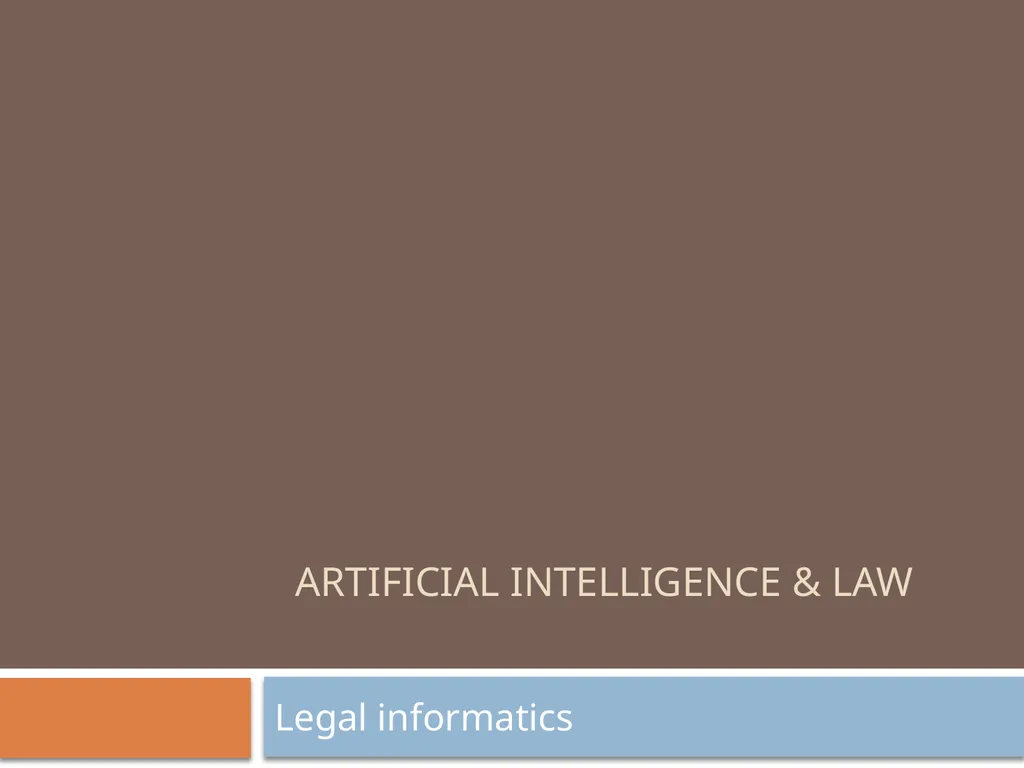
Author : liane-varnes | Published Date : 2025-05-16
Description: Artificial Intelligence LAW Legal informatics Systematic perspecitve History of legislation Reorganisation due to the inconsistency of legal sources 3000 BC - ancient Egyptian law was formed as a civil code basis: concept of Maat -Download Presentation The PPT/PDF document "" is the property of its rightful owner. Permission is granted to download and print the materials on this website for personal, non-commercial use only, and to display it on your personal computer provided you do not modify the materials and that you retain all copyright notices contained in the materials. By downloading content from our website, you accept the terms of this agreement.
Here is the link to download the presentation.
"Artificial Intelligence & LAW Legal informatics"The content belongs to its owner. You may download and print it for personal use, without modification, and keep all copyright notices. By downloading, you agree to these terms.













